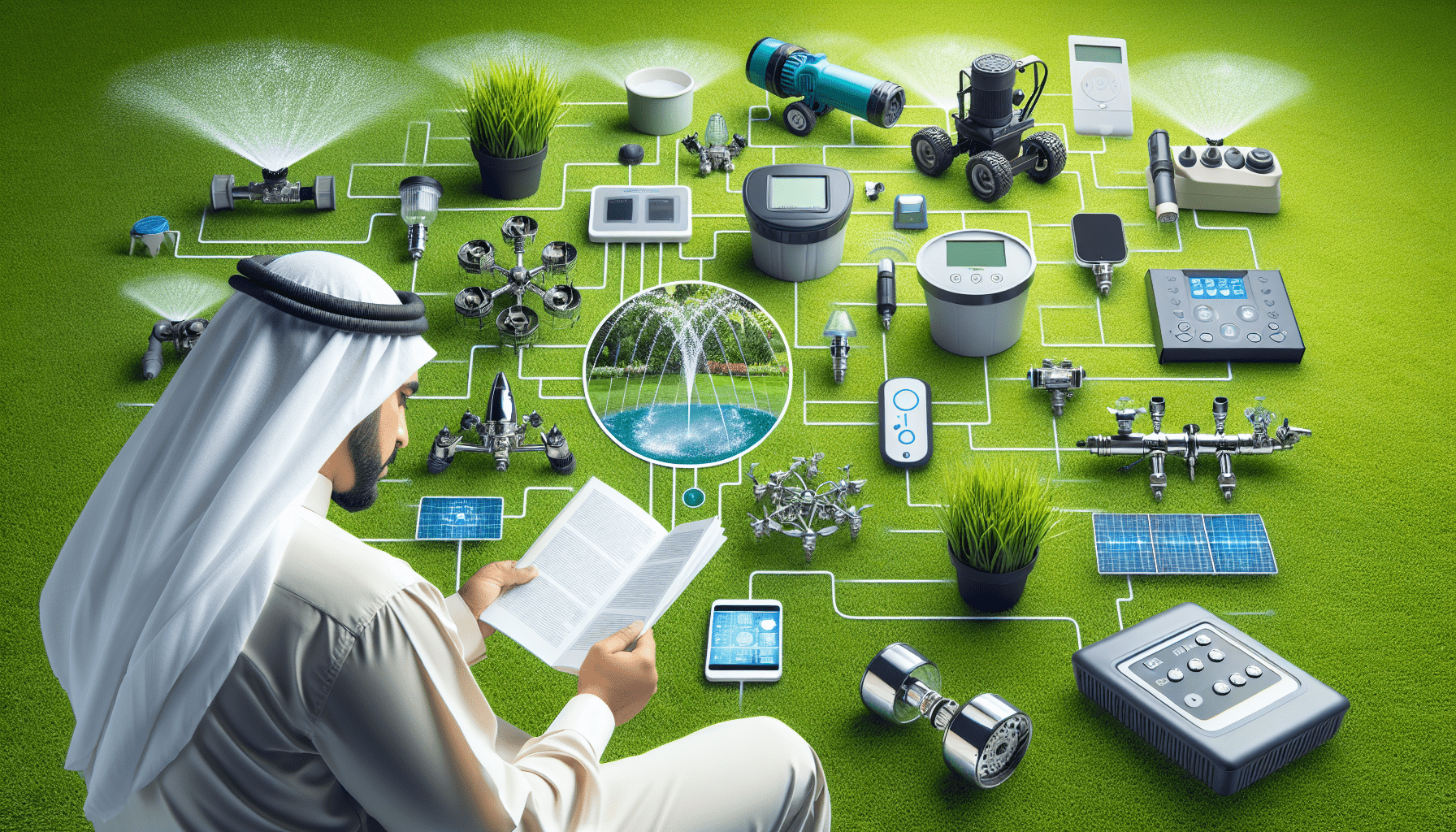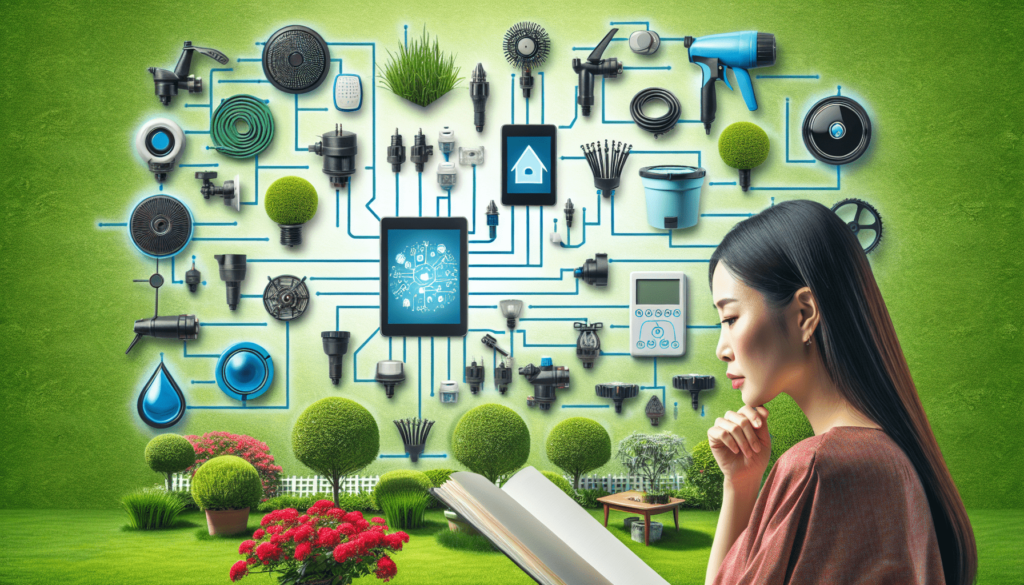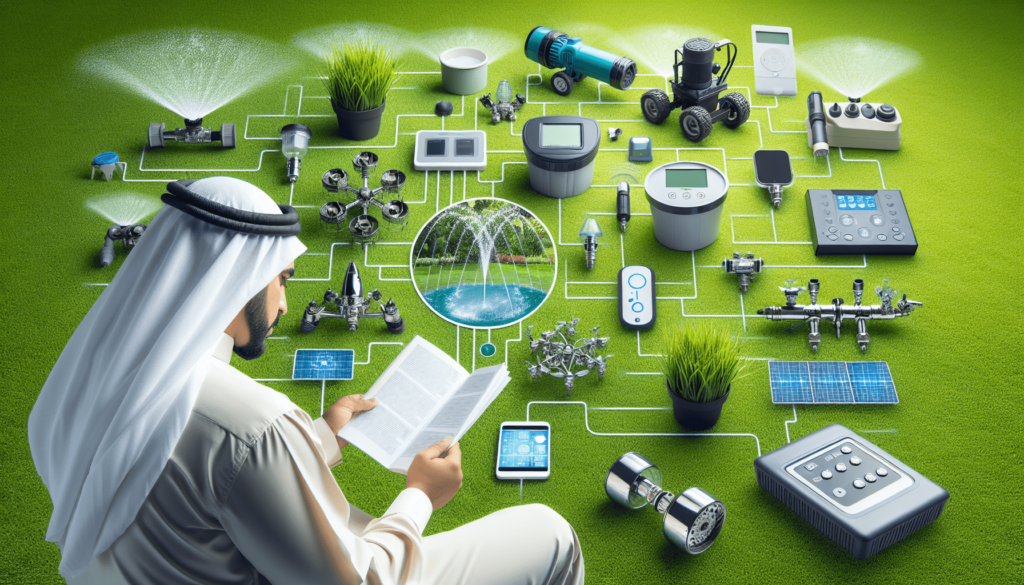
Imagine having a lush, green lawn that virtually takes care of itself. This can be your reality when you choose the right smart irrigation system for your lawn. This article empowers you with knowledge to make an informed choice, providing insights into the innovative technologies available, factors to consider such as water efficiency and climate adaptability, plus looking at cost and installation processes. Enabling you to have the control and convenience that comes with having a well-maintained, automatic and intelligent watering system right in your backyard.

Understanding Smart Irrigation Systems
When you take on the responsibility of maintaining a lawn, watering should be in your list of top priorities. But in these times, when climate change and water conservation are global concerns, it pays to be wise about scheduling and measuring your watering activities. This is where smart irrigation systems come in.
Demystifying smart irrigation
Smart irrigation refers to the usage of technology to automate and optimize the watering of your lawn. These systems use various mechanisms, like sensors or weather forecasts, to determine the watering needs of your landscape, aiding in water conservation.
Benefits of smart irrigation systems
The main benefit of smart irrigation is water efficiency. You no longer need to guess when and how much water your lawn needs; the system takes care of that for you. Smart irrigation systems can help reduce excess water usage, saving water and money on your bills. Moreover, properly watered lawns yield healthier plants and more vibrant landscapes.
Components of a smart irrigation system
A typical smart irrigation system consists of a controller, which is like the system’s brain, and various sensors that detect soil moisture, rainfall, wind, temperature, and more. This information guides the controller in determining when to start or stop watering, in which areas (if it supports zoning), and how much water to deliver.
Assessing Your Lawn’s Irrigation Needs
Before choosing a smart irrigation system, conduct an assessment of your lawn’s irrigation needs.
Identifying your lawn’s watering requirements
Not all lawns are the same, and what works for one may not work for another. Get to know your lawn and its specific watering needs. For instance, lawns with more grass usually require more water than those with plenty of shade.
Factor in your lawn’s size
The size of your lawn greatly impacts your irrigation needs. Larger lawns might require a more complex irrigation system compared to smaller ones, which might do well with simpler setups.
Understanding the types of plants on your lawn
Understanding the types of plants on your lawn goes a long way towards efficient watering. Different plants have different water needs; for example, succulents require less water than most flowers.
Considering your lawn’s sunlight exposure
Sunlight exposure affects how quickly your lawn’s soil dries out. If your lawn receives a lot of sunlight throughout the day, it might need more frequent irrigation.
Evaluating your soil type
Different types of soil have different water retention abilities. Sandy soils, for instance, retain less water than clay soils and thus may require more frequent watering.
Different Types of Smart Irrigation Systems
There are mainly three types of smart irrigation systems: sensor-based, weather-based, and a hybrid of the two.
Sensor-based systems
Sensor-based systems use soil moisture sensors to monitor if your lawn needs watering. When they detect dry soil, they signal the controller to start watering, and when the soil achieves the desired moisture level, they signal it to stop.
Weather-based systems
weather-based systems, also known as evapotranspiration (ET) controllers, utilize local weather data to determine the watering needs of your lawn. They factor in elements such as temperature, rain, wind, humidity, and solar radiation to predict how much water your lawn will lose each day.
Hybrid smart irrigation systems
Hybrid systems combine the features of sensor-based and weather-based systems to provide a more comprehensive solution. They are able to adjust your irrigation plan according to real-time soil moisture levels as well as the current weather conditions.
Understanding the pros and cons of each type
Each type of system has its strengths and drawbacks. Sensor-based systems, for instance, give precise measurements of soil moisture but may not take weather patterns into account. Weather-based ones predict watering needs accurately but might miss specifics of certain areas in your lawn. Hybrid systems offer a comprehensive solution, but they could be more complex and costly.

Budget Considerations
Before investing in a smart irrigation system, consider both the initial cost of installation and the long-term maintenance cost.
Assessing the initial cost of installation
Smart irrigation systems require an upfront investment. Depending on the complexity of the system and named brand, the cost can range from affordable to expensive. Make sure to factor this into your budget.
Factor in the long-term maintenance cost
In addition to the initial cost, consider the cost of maintaining the system over time. There might be additional costs such as power usage by the system, sensor replacement, or servicing cost.
Understanding how smart irrigation systems can save water and money
Despite the upfront cost, smart irrigation systems can result in savings over time. By watering your lawn more efficiently, these systems can cut down on your water usage, effectively lowering your water bills. In some areas, using a smart irrigation system might even qualify you for rebates from your local water utility.
Installation and Setup
Once you’ve chosen the right smart irrigation system, the next step is installation.
Professional vs. DIY installation
Depending on your technical skills and the complexity of the system, you can choose to install it yourself or have it professionally installed. While DIY installation can save on costs, professional installation ensures that the system is set up correctly and optimally.
Understanding the setup process
Whether done professionally or by yourself, understanding the setup process is crucial. Understand fundamental steps like how to correctly place sensors, how to set up the controller, and how to program the irrigation schedule.
Compatibility with existing irrigation systems
Before making your purchase, ensure that the smart irrigation system you’ve chosen is compatible with your existing irrigation setup. Some systems easily integrate with existing setups, while others may require extensive modifications.
Ease of use and user interfaces
A user-friendly interface eases the management and monitoring of the system. Look for a system that allows you to conveniently tweak settings, monitor water usage, and view watering schedules.
Integration with Smart Home Systems
The beauty of smart irrigation systems is that they can often be integrated with your existing smart home systems for seamless control.
Compatibility with major smart home systems
Many smart irrigation systems work with popular smart home platforms like Google Home, Amazon Alexa, and Apple HomeKit. This allows you to control them using the same apps and voice commands you use for your other smart home devices.
Using smart speakers for control
Integration with smart speakers means you can use voice commands to control your irrigation system. You can ask your smart speaker to start or stop watering, change the watering schedule, or give you updates about your water usage.
Mobile app support
Most smart irrigation systems come with dedicated mobile apps, allowing you to control your watering from anywhere. This is particularly useful if you travel often or don’t want to manually adjust your sprinklers every time weather patterns change.
Features to Consider
When choosing a smart irrigation system, there are certain features that can increase the system’s usefulness and efficiency.
Adjustability and automation features
Smart irrigation is all about convenience and efficiency. Look for a system that provides high adjustability and automatic adjustments based on factors like weather changes, seasons, and plant type.
Zone control capability
Zone control is a beneficial feature if your lawn has different areas with distinct watering needs. With this feature, you can assign different watering schedules for these areas, ensuring each part of your lawn gets the right amount of water.
Leak detection and alerts
Some smart irrigation systems can detect leaks in the irrigation system and send alerts to your mobile device. This feature can save you a lot of water and money by catching small problems before they become big ones.
Rain delay and wind skip features
Rain delay and wind skip features help ensure that your system doesn’t water unnecessarily. If it’s raining or if strong winds might blow away the water before it can soak into your soil, these features will postpone watering.
Warranty and Support
Before finalizing your purchase, it’s also essential to consider the warranty and customer support provided by the manufacturer.
Manufacturer’s warranty
A good warranty shows the manufacturer’s confidence in their product and provides you with peace of mind. Check what’s covered and for how long.
Customer support availability
Great customer support can make all the difference, particularly if you’re new to smart irrigation systems. Look for a company with a reputation for friendly, effective customer support.
Availability of replacement parts
Down the line, you may need to replace certain parts of your system. Ensure that the manufacturer either provides or recommends replacement parts so that you won’t have trouble finding them when you need them.
Reviewing and Comparing Products
Take time to review and compare different products before coming to your final decision.
Reading product reviews
Reading reviews from other users can provide real insights into the quality and usability of the product. Pay attention to common complaints or praise.
Comparing product specifications and features
Carefully go through the specifications and features of each product to see which one meets your needs best. Consider factors such as the number of zones it can handle, whether it has smart home integrations, or if it offers leak detection and alerts.
Taking note of customer feedback and testimonials
Trusted testimonials can provide a wealth of information about a product. This feedback can give you a better indication of how the product performs in real-life situations.
Making the Final Decision
Just like any other important purchase, choosing the right smart irrigation system for your lawn requires thoughtful consideration.
Taking your needs and budget into account
Always consider your lawn’s specific watering needs and your budget. A more expensive system isn’t necessarily better if it doesn’t align with your lawn’s needs or overshoots your budget.
Weighing the pros and cons of your top choices
Every choice contains a balance of pros and cons. Reflect on these carefully. Are there features you can’t do without? Any features not worth the additional price? Are there alternatives that may suit your needs better?
Making an informed decision
Finally, based on your needs, research, and budget, make your well-informed decision. Remember, the best smart irrigation system for you is the one that meets your lawn’s needs, is within your budget, and makes you feel like the effort of maintaining a beautiful lawn just got easier.
